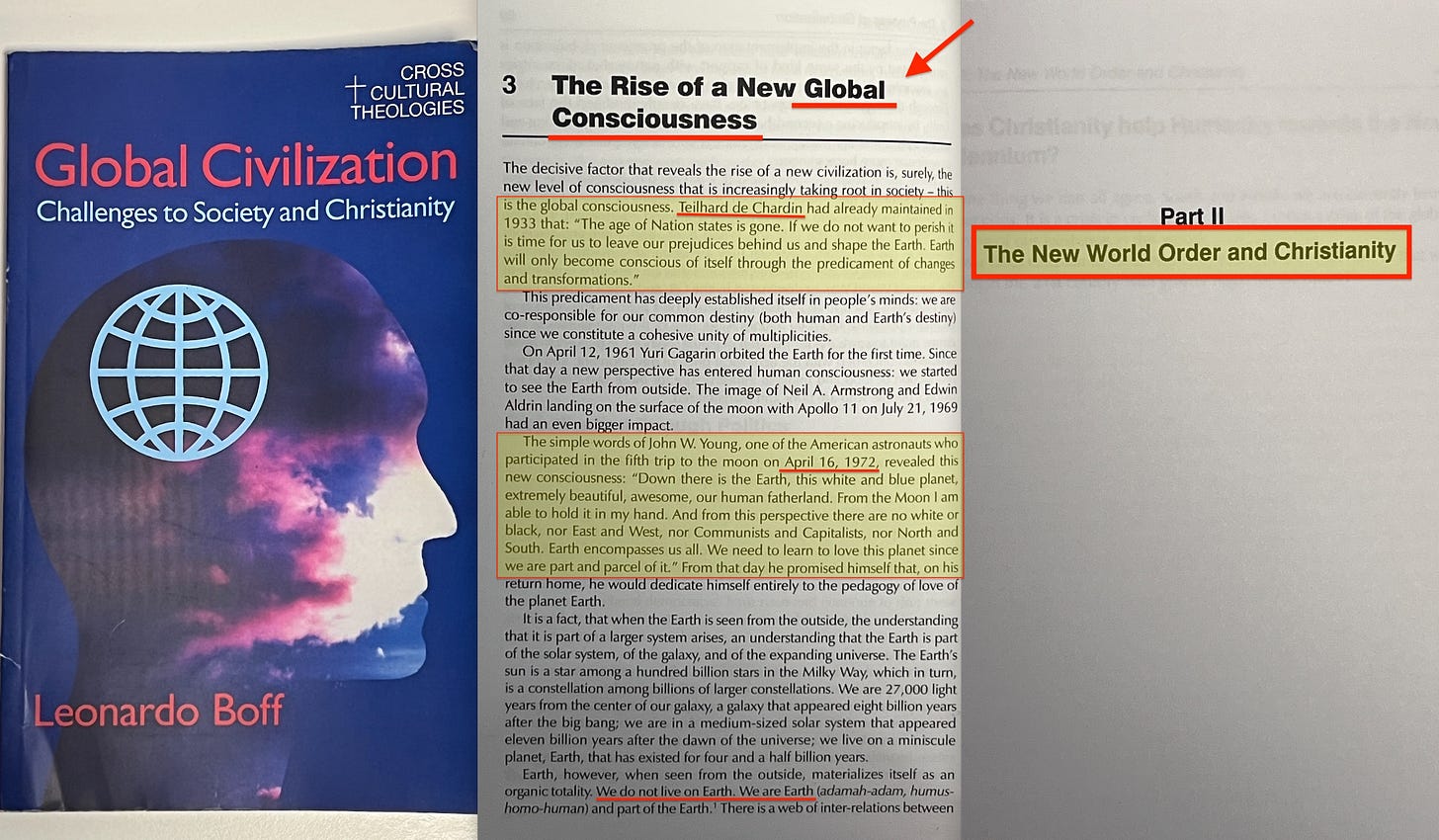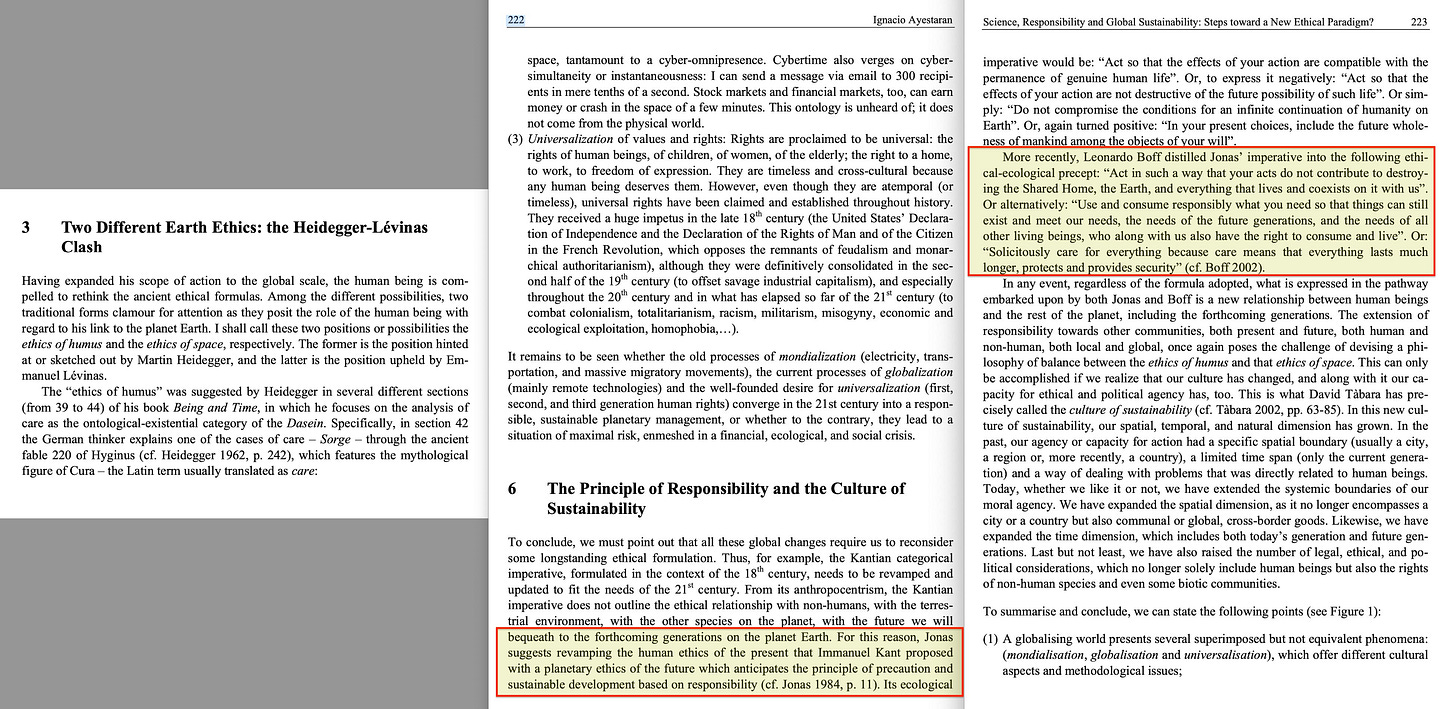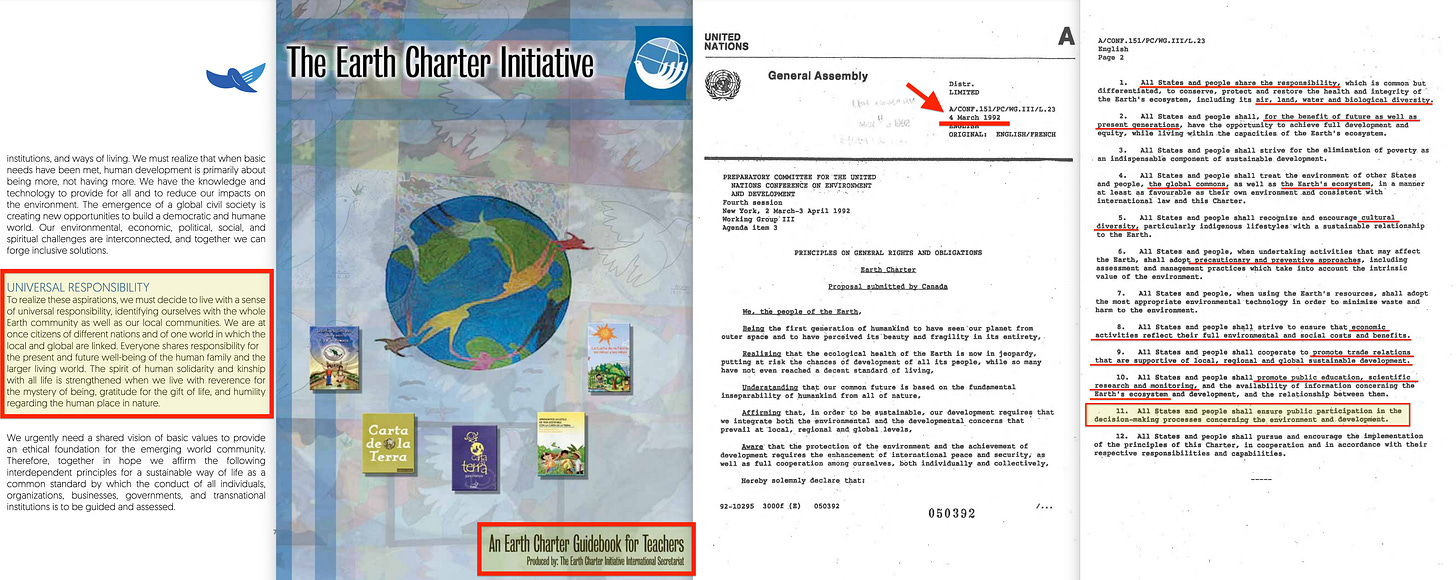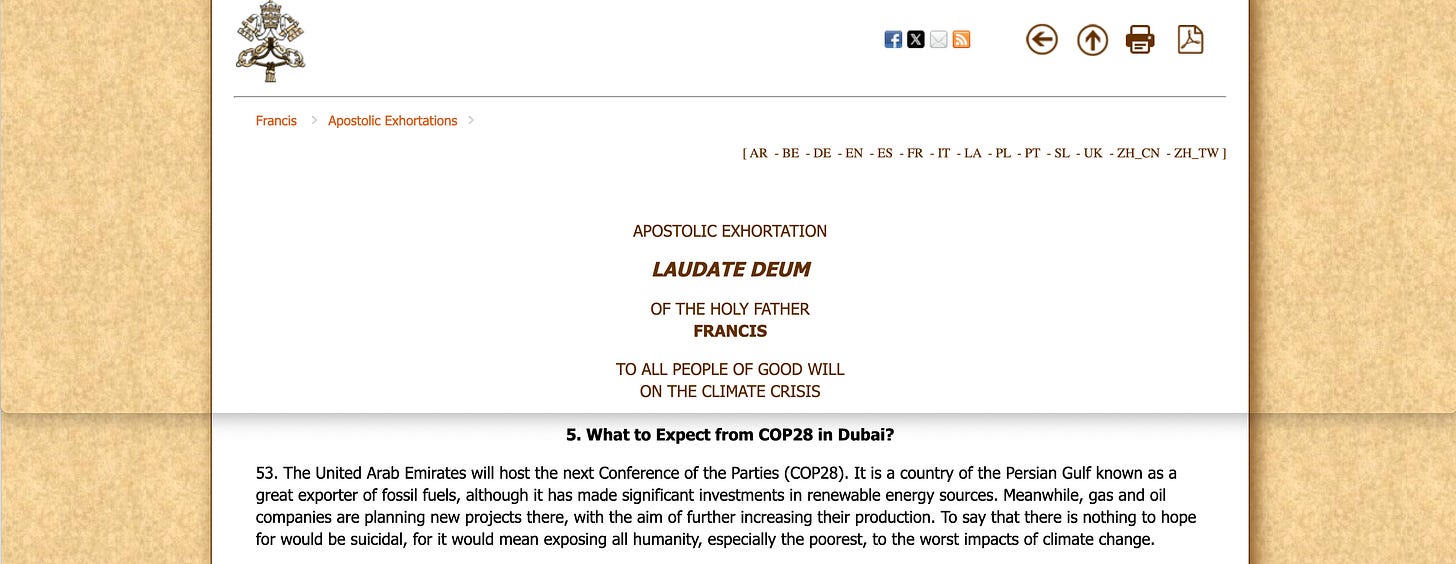The Earth Charter
Global Governance through Global Ethics. That’s the plan.
And related efforts from the 1990s all culminate in one crucial event: the release of the Earth Charter, with key figures like Maurice Strong, Mikhail Gorbachev, Leonardo Boff, and Steven Rockefeller playing pivotal roles.
This article will begin by summarising recent, related substack posts.
In 1991, Tony Blair wrote an article for Marxism Today, arguing that the public-private tension should be reoriented to serve the ‘public interest’ (the common good). To achieve, both parties should accept some ‘loss of freedom’ by balancing ‘rights and responsibilities’, which through ‘social responsibility’ extends to business. And government should legislatively invervene to uphold said common good.
And this approach continues through Blair’s 1998 Fabian Society pamphlet, ‘The Third Way’, which emphasised the need for civil society participation, ‘decentralisation’ or ‘devolution’, public-private-partnerships, and global regimes addressing environmental matters and international crime. And the ‘loss of freedom’ called for in 1991 is repeatedly framed through ‘rights and responsibilities’.
However, Blair’s definition of ‘decentralisation’ is not what one might expect. Rather, his principle of ‘subsidiarity’ relates to the realignment of society, with each aspect of policy ‘decentralised to the lowest appropriate extent’. Consequently, when he speaks of an international regime to monitor and enforce environmental regulations, it’s because in the context of environmental issues, ‘the world’ is the lowest appropriate level of ‘decentralisation’.
And his partner in crime - Bill Clinton (with equally cooperative Al Gore) - pushed through similar in the United States, only he coupled his initiative with global, top-down, integrated land management through the Ecosystem Approach.
The year following Tony Blair’s article in Marxism Today saw the Earth Summit taking place in Rio (1992), producing three major documents: the Convention on Biological Diversity relating to carbon sequestration, and which through the Ecosystem Approach addressed centralised, integrated land management; the UNFCCC, focusing on carbon emissions and thus emission permits; and Agenda 21. While the latter was presented as a ‘soft law’ instrument and thus not a legally binding, what actually proposed a new future tripartite global governance structure, comprising the public sector (elected representatives), the private sector (business), and non-government organisations (NGOs). And said NGOs should participate in decision making capacity at the highest levels of international affairs. It additionally proposed the application of ‘ethical principles’ to science, and the integration of environmental awareness into education and legislation.
The fusion of ethics principles into science followed through ICSU’s 1996 SCRES initiative, which relates to internal matters of the scientific community. And in 1997 followed UNESCO’s COMEST, which relates to external matters. When combined, these led to the progressive silencing of the scientific community under the guise of potential ‘ethics violations’.
Agenda 21 paved the way for ‘Our Global Neighbourhood’ in 1995, which placed the restructuring of global governance institutions on the agenda.
Six years on (1998), the scope of NGO participation was broadened to include CSOs, including not only NGOs but also unions, and similar groups. In 2000, a report on global public policy networks was released, calling for the United Nations to be restructured to, in effect, serve senior NGOs (ECOSOC-registered General Consultative Status NGOs), which would now have the right to ‘place items on the agenda’.
Consequently, the above developments amount to a call for the restructuring of global governance around environmental awareness, with the responsibility for setting the agenda delegated to senior, ECOSOC-registered NGOs.
A key issue of the environmental initiative relates to carbon dioxide emissions, for which a system should be established (by connected insiders), who further saw this system broadened to comprise all aspects of nature - including water and breatheable air - thus forming an early proposal for ‘ecosystem services’.
But the carbon emission narrative is fragile. Very fragile. This was nearly exposed in 2009 during the ‘Climategate’ affair, which - far from being merely about an ‘email controversy’ as commonly claimed today - was nothing short of a cesspool of institutionalised corruption at the highest levels.
The participants of trisectoral networks - public, private, CSOs - these must all adhere to a centralised set of ‘Good Governance’ principles. And these further break down into ‘Good Government Governance’, ‘Good Corporate/Business Governance’ and ‘Good Society Governance’, ensuring all parcipants adhere to a common set of principles. And this is further a prerequisite for 3rd world nations to receive foreign aid. Furthermore, in 1992 the World Bank hinted at the need for civil service reform, and in 1997 the UNDP moved that goalpost to even include electoral reform.
‘Good Governance’ can broadly be understood as ‘Traditional Governance’, incorporating principles of ‘Ethical Governance’. Consequently, ‘Good Governance’ actually represents the fusion of a framework of ‘ethics’ into all governance structures.
Governance through ethics is a well-trodden path… by historical dictators. Hitler, Stalin, Mussolini, Mao, Pol Pot, … they all merged ethics and governance, thus serving to ‘justify’ the murdering of tens of millions.
And this drive is global. While the Netherlands, Germany, Italy, France or even the United States might steal headlines, reality is they’re rolling this out in even the ‘happiest nations on earth’.
Consequently, the future of Global Governance will be controlled by ECOSOC registered NGOs with General Consultative Status, guided by a narrative of environmental stewardship. And this will involve the monetisation of nature, with all societal actors ultimate subject to ‘Good Governance’ principles based on arbitrary ethics - a concept that Hans Kung notably advanced in 1993, at the Parliament of the World’s Religions in his document, ‘Towards a Global Ethic’. Should a such ever be codified into legislation, then we’d risk converging with the methods of history’s worst mass murderers. And in 2020, the ‘Global Citizen Commission’ led by Gordon Brown explicitly called for exactly this codification of ethics into law - though legislatively passed and policed at sovereign level.
And though this might sound sensationalist, every claim is thoroughly sourced, with key parts of official documents examined in depth. And in the article on Agenda 21, Henry Lamb’s review of ‘Our Global Neighbourhood’ is included, which reached much the same conclusions… several decades ago.
So what's the logical next step in this progression? Let’s ask Steven Rockefeller, who (with Maurice Strong and Mikhail Gorbachev) was a primary contributor to the ‘Earth Charter’, who in 2005 specifically called for… ‘Planetary Ethics and Global Governance’1.
I’m not a big fan of Wikipedia. Not only due to their grossly dishonest entry on Climategate, but also because it entirely lacks entries on the ESWI, Silent Weapons for Quiet Wars, and the President’s Council on Sustainable Development - all rather convenient to the central narrative.
But I do occasionally use it, typically when the same information is easily accessible elsewhere. This is one such example2.
‘The idea of the Earth Charter originated in 1987, by Maurice Strong and Mikhail Gorbachev as members of The Club of Rome, when the United Nations World Commission on Environment and Development called for a new charter to guide the transition to sustainable development… working through organizations they each founded (the Earth Council and Green Cross International respectively), restarted the Earth Charter as a civil society initiative, with the help of the government of the Netherlands‘
… and just to cement the roles of Strong and Gorbachev -
‘The drafting of the text was done during a six-year worldwide consultation process (1994–2000), overseen by the independent Earth Charter Commission, which was convened by Strong and Gorbachev with the purpose of developing a global consensus on values and principles for a sustainable future.
One of the members of the Earth Charter Commission and Steering Committee was Steven Clark Rockefeller… an advisory trustee of the Rockefeller Brothers Fund‘
Consequently, the ‘independent’ Earth Charter Commission - with the participation of Strong, Gorbachev, and Rockefeller - set out to create… a global ethic.
And the article ‘Toward a great ethics transition: The Earth Charter at twenty‘3 dives into detail. See, all political and economic decisions should be centred around ‘ethics’ and ‘a critical moral evaluation’ - especially matters relating to the UNFCCC and CBD -
‘The Earth Charter, and its sister declarations of universal ethical values and principles, can be put to work in meeting our collective challenges. All political and economic decisions and policies, however apparently pragmatic such as matters of trade and defense, entail ethical considerations. We need to normalize the idea of calling out the ethical dimensions of public and vested interest responses to the urgent problems of our time, including the climate and biodiversity crises, and subjecting them to critical moral evaluation‘
The issue is in fact rather that urgent it even goes to include that -
‘… need for a new World Environment Organization mandated with a trusteeship function over global public goals and common goods, with the Earth Charter articulating the ethical basis of these trusteeship duties‘
… the Earth Charter is an ethical framework, a foundation on which an organisation can be created, tasked with the administration of the global commons. And the third area of One World Trust’s Charter 99 called for much the same, even before the Earth Charter saw the light of day at UNESCO’s headquarters in the year 2000.
Steven Rockefeller is listed in the above as leading the drafting process. He was further interviewed in 2015 by Paul Raskin’s Great Transition Initiative4, and asked the crucial question - What are the origins of the Charter?
‘Its origins can be traced all the way back to 1948 and the founding of the International Union for the Conservation of Nature and Natural Resources (IUCN), which included a call to create a World Charter for the Protection of Nature…’
Before adding that not only is there an ‘ethics’ deficit at the United Nations -
‘We need more ethical clarity from the United Nations and our political and social leaders… lack of moral clarity contributes to the lack of political will for setting and implementing sustainability goals. President Obama now talks about addressing climate change as a moral obligation, but most political and corporate leaders do not want to be restrained by moral imperatives and global ethics. They, for example, do not want to acknowledge that the environment is an ethical issue and that human beings as members of the community of life have responsibilities to, as well as for, the greater community of life and other life forms‘
… but humanity in general have an ethical responsibility relating to planetary stewardship. Fortunately, by then Obama had begun discussing ‘our moral obligation’.
And yes, Obama really did issue a moral call… naturally, involving children. It’s always about the welfare of our children. Any good authoritarians will tell you that5. But he also claimed that carbon in this regard is pollution… of course, using the same logical line of reasoning, so is water.
Let’s have a look at their own documents, and here’s ‘The Earth Charter Initiative Handbook‘6, released in 2008. We learn that Steven C Rockefeller indeed is involved, that this initiative relates to ethics, and -
‘It seeks to inspire in all people a new sense of global interdependence and shared responsibility for the well-being of the whole human family, the greater community of life, and future generations‘
… inspiring collective responsiblity is key.
‘In light of this legitimacy, an increasing number of international lawyers recognize that the Earth Charter is acquiring the status of a soft law document. Soft law documents like the Universal Declaration of Human Rights are considered to be morally, but not legally, binding on state governments that agree to endorse and adopt them, and they often form the basis for the development of hard law.‘
Great. Hard law, directed by universal ethics, as set out by the Earth Charter.
From the preamble we learn that ‘it is imperative that we, the peoples of Earth, declare our responsibility to one another, to the greater community of life, and to future generations‘. The rest of this page is boilerplate, speaking of extinction of species, the need to preserve a healthy biosphere, to form a global partnership, finally stating that the ‘emergence of a global civil society is creating new opportunities to build a democratic and humane world‘, which of course is neither democratic nor will be particularly humane. The next page starts off on a strong note -
‘… we must decide to live with a sense of universal responsibility, identifying ourselves with the whole Earth community as well as our local communities... Everyone shares responsibility for the present and future well-being of the human family and the larger living world‘
The call for global ethics has become a call for universal responsibility…
‘We urgently need a shared vision of basic values to provide an ethical foundation for the emerging world community. Therefore, together in hope we affirm the following interdependent principles for a sustainable way of life as a common standard by which the conduct of all individuals, organizations, businesses, governments, and transnational institutions is to be guided and assessed‘
… with which we must all abide. The principles then outline all the Aesopian terms we’ve come to love, where ‘human dignity’ relates to the expectation of serving the ‘common good’, the ‘duty to prevent harm’ means your property rights are subjugated to collectivist demands, and the call to ‘develop your full potential’ (per Marc Gafni) relates to fully accepting being a cell in the human super-organism, ie collectivism.
And environmentalism must be integrated with every nook of society, and resources - renewable as well as non-renewable - must be ‘managed’, though this part doesn’t explicitly link Trisectoral Networks… yet.
All activity which could cause harm must be avoided - which of course is a complete impossibility to know up front, but this ensures that you can be held ‘morally responsibile’ for just about anything down the road - much like alleged justification employed by Hitler at the time, dealing with… inconveniencies.
Finally, it’s important that we institute principles of tech transfer, because it makes a handful of middle-men very wealthy, and everyone should be given universal access to healthcare - as this is yet another top-down organised operation, monopolising information, education, vaccines, and drugs in general. And this naturally slots in just beautifully with the present drive relating to the WHO Pandemic Agreement.
It’s further extremely important to redistribute your income, and grant people ‘rights’ which in reality call for the control of the opposite like, say, land, as ‘the right to food security’ doesn’t relate to being handed free food, but rather you given the opportunity to provide for yourself, meaning that you will live on a plot of land, owned by the guy… living in the manor house.
Cancellation of 3rd world debts… through indirect taxpayer bailouts of the global banks owning the bonds, ensures they take no losses on poor investments, and unless your company’s produce abide global legislation on matters of the Circular Economy, quack environmental science, and ‘progressive labour standards’ likely akin to those experienced behind the Iron Curtain in the 1970s, then you will quite simply not be allowed to trade, and thus your solvency will be threatened.
The ‘protection of places of outstanding beauty’ relate to UNESCO Heritage Sites which - much like their Biosphere Reserves cousins - globally control huge swathes of land, only set to increase as Debt-for-Nature Swaps eventually explode, transferring collateral to UNESCO’s Biosphere Reserves in the process.
And it is entirely on them to decide what information is ‘clear and timely’, and the inclusion of ‘meaningful participation’ especially relate to the ‘global civil society’ who quite simply must be involved in the ‘decision making’ - because mob justice and fake grassroots organisations clearly constitute a more ‘fair’ representation of democratic ideals than one-man-one-vote, per these crooks.
The ‘protection of freedom of expression’ in proper collectivist fashion is better reframed as ‘your responsibility to protect the freedom of expression of others‘, meaning that it’s not actually about your rights but rather your responsibilities, and thus, their call to silence you through the ‘updating of free speech liberties’ is entirely compliant with this principle, as your wrongthink opinions clearly constitute a ‘danger to others’ - or even their definition of ‘democracy’.
The ‘elimination of corruption’ can be distorted, not only through the arbitrary upholding of said principles, but also through the creation of conceptual ‘democratic legitimacy’, thus seeking to filter political candidates before they ever get an opportunity to represent legitimate voter concern.
And as environmental concerns are global, the call to ‘assign environmental responsibilities to the levels of government where they can be carried out most efficiently’ means that there will be just one agency in charge of alleged carbon dioxide air ‘pollution’ - and that agency of course will be global.
Education should be twisted, mass media should be employed as a vehicle of brainwashing, and the ‘moral and spiritual education’ could well relate to drumming in a sense of guilt for not following suit, regardless of how absurd and conflicted the underlying ‘science’ happens to be.
And finally, we must deconstruct defense systems, and ‘harmonise the exercise of freedom with the common good’ which of course means that you might well be under permanent lockdown in your 15 minute prison complex, as the future ‘air pollution indicator’ just keeps worsening - though you will not be able to independently verify this, as the underlying data was procured from a private organisation setup for this purpose, meaning said data now constitutes a trade secret. And as for ‘peace is the wholeness created by right relationships’, this frames the concept of peace as the ultimate societal purpose, and as these ‘rights’ will promptly be transferred up the hierarchy leaving you with only responsibilities, what this actually means is that you must abide your responsibilities or you’re committing an ‘ethics violation’, much like those doctors during the alleged pandemic allegedly did, ultimately leading to their dismissal for refusing to carry out the most outrageous of orders. And finally -
‘The arts, sciences, religions, educational institutions, media, businesses, nongovernmental organizations, and governments are all called to offer creative leadership. The partnership of government, civil society, and business is essential for effective governance.‘
… the role of the trisectoral networks is laid out clear for all to see, and the ‘creative leadership’ relates to the democratic process being entirely sidelined with ECOSOC NGOs with General Consultative Status now running the show. And to this extent, it quite simple is necessary that -
‘In order to build a sustainable global community, the nations of the world must renew their commitment to the United Nations, fulfill their obligations under existing international agreements, and support the implementation of Earth Charter principles with an international legally binding instrument on environment and development.‘
… the world across repeats the same fusion of ethics and legislation which saw tens if not hundreds of million die at the hands of authoritarian dictators during the 20th century.
Finally, to give a taste of how they spread their message of peace, equity, sustainability and… scientific socialism, they even outline their strategy, including crafting their message to the intended recipient, where business, religion, the media, and even the United Nations are all targeted.
In 2005, the ‘Earth Charter+5 Progress Report‘ was released7, and chapter 3 titled ‘Dissemination and Endorsement of the Earth Charter‘ includes -
‘Following the launch of the Earth Charter in 2000, agreement was reached that the first goal of the Earth Charter Initiative should be “to promote the dissemination, endorsement, and implementation of the Earth Charter by civil society, business, and government.”‘
Which in the light of the Trisectoral Networks isn’t that strange, and what’s even less strange is the inclusion of -
‘… the Earth Charter as an ethical guide for IUCN policy… the Earth Charter be used by IUCN to help advance education and dialogue on global interdependence, shared values, and ethical principles for sustainable ways of living‘
… because as Henry Lamb outlined (in the article on Trisectoral Networks), the IUCN is the super-NGO of all super-NGOs. But the inclusion of the highly controversial ‘Christian’, Leonardo Boff8, is further of note, as… well, why don’t I just show you?
And Boff can then further be indirectly linked with Emmanuel Levinas, Hans Jones, and Martin Heidegger through this document on… no kidding, ‘Earth Ethics’9.
But rather than going through even more material establishing much the same as above, let’s instead look at the finer detail in Steven Rockefeller’s call for ‘Planetary Ethics’ in Chapter 4, because this chapter also loops in the 2002 World Summit on Sustainable Development, a 2003 UNESCO resolution, the IUCN, and even… Jeffrey D Sachs, who totally has switched sides, Bret ‘Game B’ Weinstein.
Cool story, bro.
The second part of that chapter is titled ‘The Significance of the Earth Charter in International Law‘, which is expressly what we should avoid. There are a number of noteworthy inclusions, some perhaps for the wrong reasons.
‘States will certainly need partnerships with civil society if they want to gain control over anarchistic global corporate power‘
Yeah, that’s really not all that strange given that the CSOs (NGOs) will ultimately be in charge, followed by -
‘Agenda 21 has been recognized and implemented by wide sectors of civil society all around the world.‘
Golly, right? How strange that CSOs would advocate something which benefits… the CSOs themselves. And in the context of law -
‘A decisive step toward soft law recognition would be a resolution of recognition by the United Nations General Assembly. But, even without such recognition, there can be little doubt about the Earth Charter’s potential. A number of pathways could lead to the Earth Charter being acknowledged as a legally binding international instrument.‘
… whatever you do, make sure it’s not a democratic process in the slightest.
‘However, the most promising path of all is to insist on the Earth Charter’s validity as a novel instrument of ‘global law’. Never before have so many people, in so many different countries, representing so many cultures and religions, reached a consensus on a central theme of humanity. To some extent, the Earth Charter can be celebrated as global civil society’s first and foremost founding document.‘
It can be described as a power grab by a few, select environmental NGOs.
‘From the perspective of ecological integrity and sustainability, care for one another and for future generations is useless if we ignore the community of life that we are part of. If this is a moral imperative, it should also be a legal imperative.‘
… no. It should absolutely not.
We further have a front-facing booklet10, full of happy colours and universal responsibilities, brainwashing material for teachers11, and the 1992 UN proposal calling for for Earth Charter12, which appears… remarkably on target.
We even have a 2010 article, framing the Earth Charter as - I kid you not - ‘a feasible, ethical Utopia’13, with a third axis constituting ‘Universal, synchronic, diachronic and differentiated co-responsibility‘. This time truly is different, eh?
We also have an endorsement from 2004 courtesy of the IUCN14, a Baha’i source related to same15, a connection to the world religions16, and even a book titled ‘Earth Charter in Action’ which I’m yet to read17. Let’s instead head over to Hassan Hamed’s review of Hans Kung’s ‘Global Ethic Project’18, because he raises a good question.
Because as it happens, Laudato Si19 explicitly dragged in the Earth Charter (along with Integral Ecology, for the record).
Incidentally, part two is titled Laudate Deum - and it’s even worse20. How anyone can believe that the Vatican hasn’t been completely corrupted is beyond me.
Global Governance through Global Ethics. That’s the plan. And though this post specifically relates to ‘Planetary Ethics’ through the Earth Charter, the reality is that ‘ethics’ itself is hierarchical, and ‘Cosmic Ethics’ sit on top. But that’s for another day, though I’d suggest looking towards Jonathan Haidt21, Richard Shweder22 and Ken Wilber23 should you want to know more.
And there’s really only one thing I would more strongly object to than the concept of Global Governance through Planetary Ethics, and that would be an ECOSOC-registered NGO with General Consultative Status - thus allowing it to place items on the agenda of the United Nations and drive the Trisectoral Network decision-making process - whose mission would explicitly relate to legal codification of Global Ethics.
And as it happens, a such was registered (technically upgraded) — in 202124.




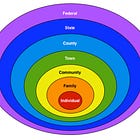






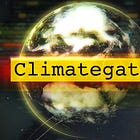
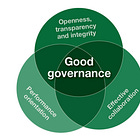
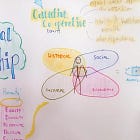


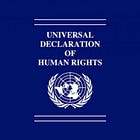

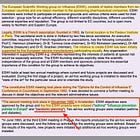









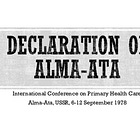
![WHO Pandemic Agreement [April, 2024]](https://substackcdn.com/image/fetch/$s_!HHbL!,w_140,h_140,c_fill,f_auto,q_auto:good,fl_progressive:steep,g_auto/https%3A%2F%2Fsubstack-post-media.s3.amazonaws.com%2Fpublic%2Fimages%2Fb69c8066-0498-4924-af63-1344abb2ec85_1206x612.png)




